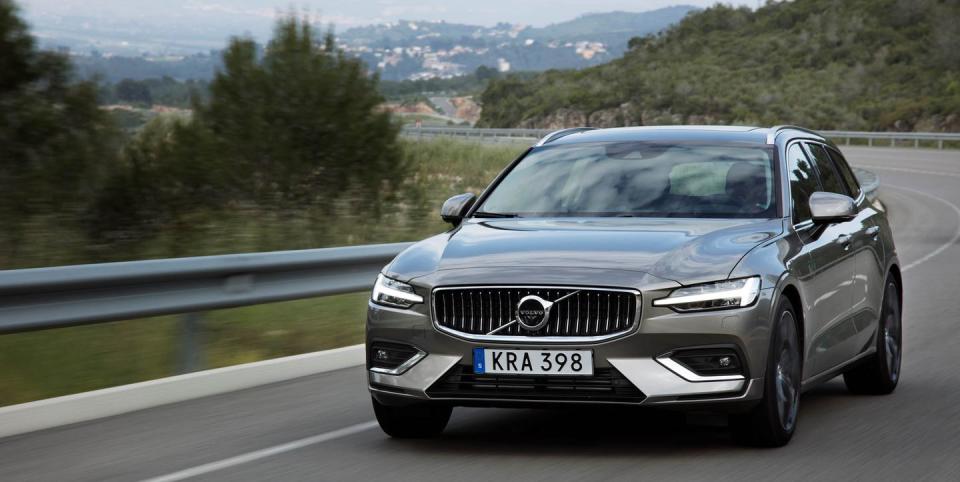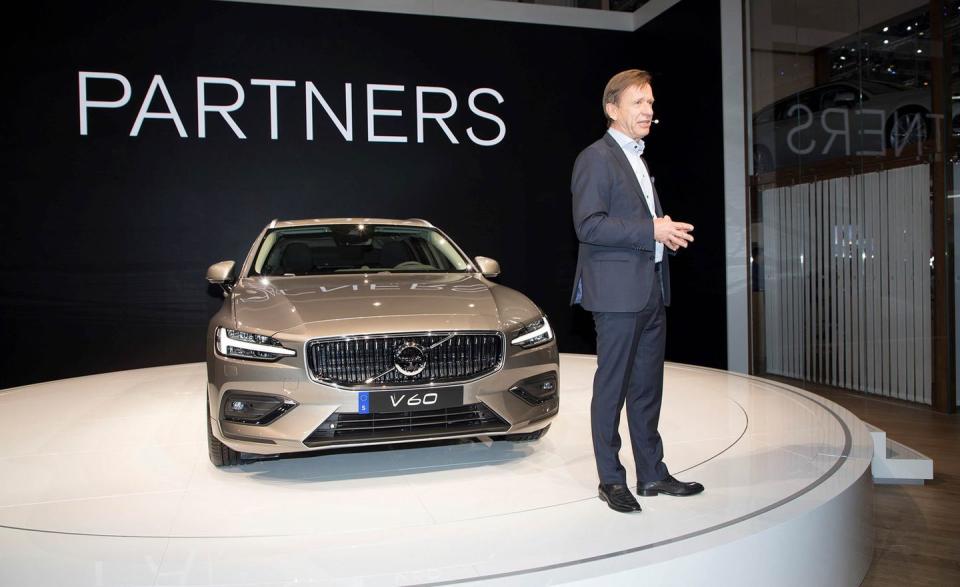Volvo Bails Out on Diesel

In Europe, if a big Volvo appears in your rearview mirror, you can be almost certain that it’s powered by a diesel engine. The Swedish diesels are characterized by high performance and powerful torque while being stingy on fuel. But their days are numbered.
At least that's what Volvo Cars CEO Håkan Samuelsson has told us for some time. Last May, he proclaimed that the company would stop development of new diesel engines. At a press conference two months later, he said that each new Volvo launched from 2019 onward will be available with "an electric motor," although his definition includes mild hybrids with a 48-volt system. Now to the next step: “Volvo Cars to eliminate diesel from the new S60 sedan,” the company brags in a press release.
“We will phase out cars with only an internal-combustion engine, with [gasoline] hybrid versions as a transitional option as we move toward full electrification,” Samuelsson said, elaborating that "the new S60 represents the next step in that commitment."
The next-generation sedan, being built in the United States and billed as a “premium sports sedan,” is the sister model of the recently launched V60. In contrast to the S60, the V60 is sold in Europe with the option of two diesel engines that not only meet rigid emission standards but are extremely economical: The best diesel is rated at a combined 54.7 mpg on the European NEDC test cycle. By contrast, the V60 with a gasoline engine only manages 30.9 mpg in the same test.
For the S60, Volvo announced hybrid and plug-in hybrid versions, both based on gasoline engines. In the early years of this decade, the company offered a plug-in hybrid that combined its electric motor with a diesel engine, but that combination, too, is vanishing.

This strategy is not without risks. Long-distance drivers may suffer a sharp decrease in fuel economy even if they switch to a plug-in hybrid. And most European carmakers continue to refine the diesel. Deleting the diesel version of the S60, of course, may just be a trial balloon with calculated risk, since the sedan market is slow in Europe anyway. It would have been a far more dicey proposition with greater risks of lost sales had Volvo first axed the diesels on the station wagon (V) and SUV (XC) models.
There is no doubt that Volvo aims to hasten the demise of the diesel engine with its statement. But it is not clear whether the competition will follow suit. In fact, General Motors, Jaguar Land Rover, and Mazda continue to push for the technology, and while Daimler and the Volkswagen Group have pulled them from the U.S. market, they still appear to consider diesels indispensable in Europe for the foreseeable future.
Meanwhile, the statement that Volvo has stopped developing diesel engines leaves one possible exit door if the strategy proves troublesome. The Swedes, after all, have a long history of purchasing their engines from other automakers. Consider Volvo’s first diesel, sold in the late 1970s: It was supplied by none other than Volkswagen.
You Might Also Like

 Yahoo Finance
Yahoo Finance 